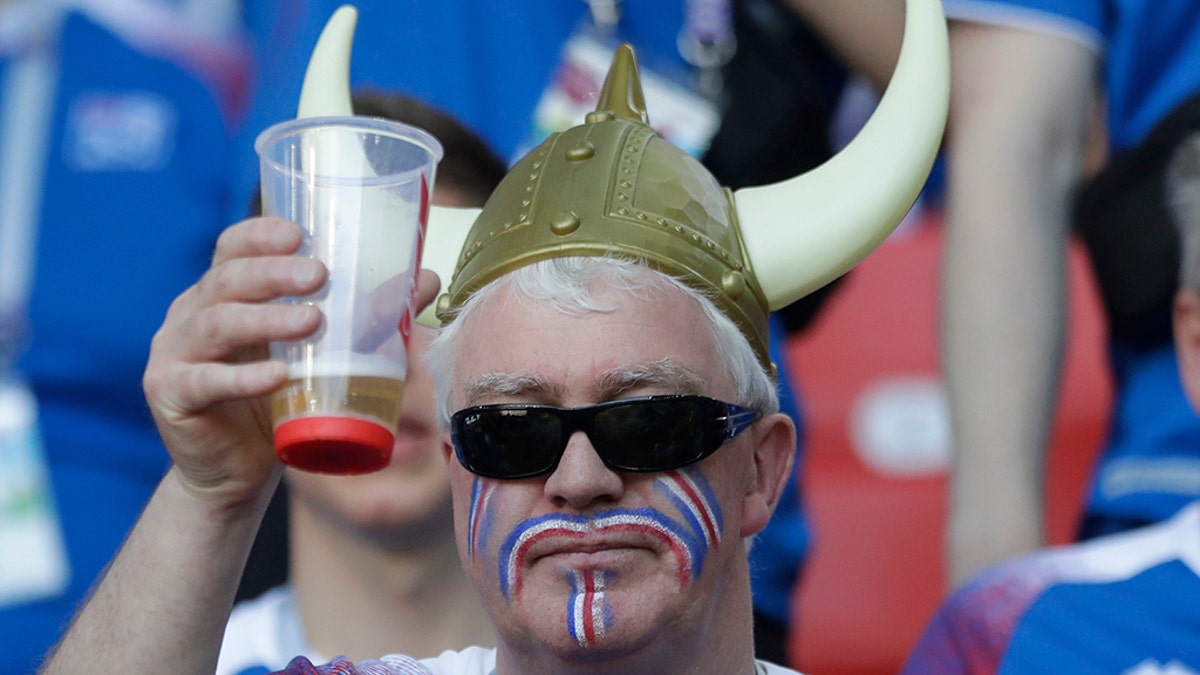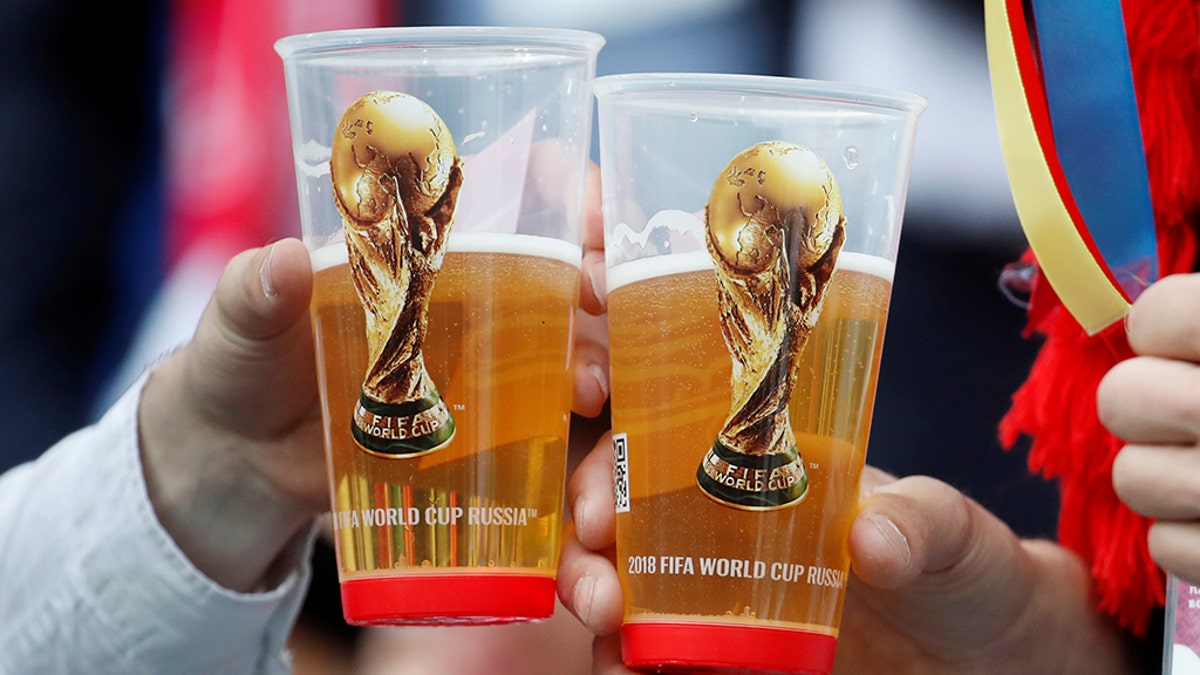
World Cup fans are guzzling beer faster than it can be supplied, according to Russian restaurants and bars. (AP)
Soccer fans gathering to watch the World Cup might soon be in for a rude awakening as beer shortages loom across Moscow, and other parts of Europe.
As crowds descend upon Moscow and other cities to watch their favorite teams battle it out on the field, bars and restaurants in the Russian capital say they’re running low on the popular drink and are having to wait longer for fresh supplies, Reuters is reporting.
“We just didn’t think they would only want beer,” one waiter at an upscale eatery in central Moscow told Reuters.
He said his restaurant ran out of draft lager on Monday and it’s been taking over 24 hours to get deliveries because the suppliers are also running low.
“There are really a lot of people in Moscow … and they are all drinking,” he said. “It’s hot, and it’s football.”
While Anheuser-Busch InBev didn’t comment on rumors of the shortage, Heineken told Reuters sales were going well and it saw no challenges in keeping up with demand.

A bartender at Gogol said soccer fans had drank over 211 gallons of beer in three days. (Reuters)
A bartender at Gogol said soccer fans had drank over 211 gallons of beer in three days, starting with the cheap lager before moving onto more expensive bottled options.
“The sun makes them thirsty,” he said of his customers. “In Russian we say, ‘To the bottom!’ I like that these guys are embracing our culture.”
Meanwhile, a CO2 shortage in the U.K. is threatening beer supply, as well as other carbonated beverages amid the World Cup festivities.
There is currently only one carbon dioxide plant operating in the region, and at least five other producers across northern Europe are offline for maintenance, according to the BBC.
"It's already stopping production," Brigid Simmonds, head of the British Beer and Pub Association, told the BBC.
FOLLOW US ON FACEBOOK FOR MORE FOX LIFESTYLE NEWS
The British Beer and Pub Association (BBPA) represents both brewers and 20,000 pubs in the U.K.
Simmonds said 82 percent of the beer consumed in the U.K. is also produced there and one CO2 supplier told her it wouldn’t be until early July before it was able to get limited production back.
